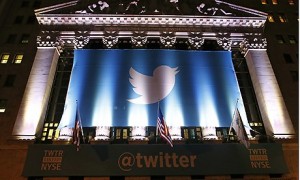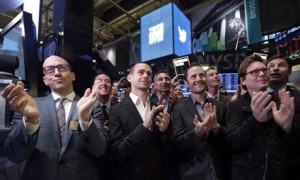 According to Nicole Poon’s blog post, the price of chocolate has drastically risen due to the increased price of raw material. Soon, chocolate will become a luxury item, so much so that not everyone will be able to afford it. Reports show that chocolate prices may possibly increase to a horrific price of $113 per kilogram. The prices of raw materials, once cheap and readily available resources for chocolate companies, are projected to increase significantly. According to research done by Mintec, the price of raw material to produce 100 grammilk chocolate bars has increased 28 percent this year. The price of cocoa butter- a major ingredient and component of chocolate bars- rose as much as 63%. Not only is the price of cocoa butter increasing, but the price of milk powder is also rising by 20%. From the statistics, the cost for a company to produce one chocolate bar is going much higher than previous times. Consequently, consumers will have to suffer from the increased prices of material and pay more for each chocolate they consume. From a business perspective, the consumption of chocolate by the world’s biggest of chocolate aficionados in Europe will most likely drop if current price trends are not reversed. By then, the sweet taste of chocolate may soon become a distant dream for most common folks.
According to Nicole Poon’s blog post, the price of chocolate has drastically risen due to the increased price of raw material. Soon, chocolate will become a luxury item, so much so that not everyone will be able to afford it. Reports show that chocolate prices may possibly increase to a horrific price of $113 per kilogram. The prices of raw materials, once cheap and readily available resources for chocolate companies, are projected to increase significantly. According to research done by Mintec, the price of raw material to produce 100 grammilk chocolate bars has increased 28 percent this year. The price of cocoa butter- a major ingredient and component of chocolate bars- rose as much as 63%. Not only is the price of cocoa butter increasing, but the price of milk powder is also rising by 20%. From the statistics, the cost for a company to produce one chocolate bar is going much higher than previous times. Consequently, consumers will have to suffer from the increased prices of material and pay more for each chocolate they consume. From a business perspective, the consumption of chocolate by the world’s biggest of chocolate aficionados in Europe will most likely drop if current price trends are not reversed. By then, the sweet taste of chocolate may soon become a distant dream for most common folks.
Sources:
https://blogs.ubc.ca/nicolejoellepoon/2013/10/08/soaring-chocolate-prices/

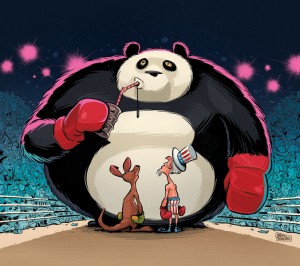
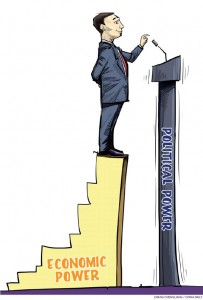
 In the past few years, China has slowly grown from its humble beginnings to become an economic powerhouse of the world. China has in fact become the world’s second largest economy, superseding the Gross National Product of Japan and with the largest foreign currency reserve of more than $1.4 trillion, some of which is held in gold. Gold prices may have dropped drastically earlier this year, but in the eyes of Chinese consumers, this prized metal still has an irreplaceable value. Statistics have shown that China has leaped over India to become the world’s top gold consumers. With a dazzling amount of 798 tonnes of gold purchased, China has outcompeted India and now prides itself as the world’s top gold holder. Gold is among the top financial assets, alongside stocks and real estate property, as favourites for Chinese investors. China, what is now considered one of the most powerful countries despite its status as a developing nation, has showed strong signs that they are capable of becoming the world’s largest economy in decades to come.
In the past few years, China has slowly grown from its humble beginnings to become an economic powerhouse of the world. China has in fact become the world’s second largest economy, superseding the Gross National Product of Japan and with the largest foreign currency reserve of more than $1.4 trillion, some of which is held in gold. Gold prices may have dropped drastically earlier this year, but in the eyes of Chinese consumers, this prized metal still has an irreplaceable value. Statistics have shown that China has leaped over India to become the world’s top gold consumers. With a dazzling amount of 798 tonnes of gold purchased, China has outcompeted India and now prides itself as the world’s top gold holder. Gold is among the top financial assets, alongside stocks and real estate property, as favourites for Chinese investors. China, what is now considered one of the most powerful countries despite its status as a developing nation, has showed strong signs that they are capable of becoming the world’s largest economy in decades to come.

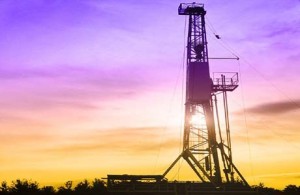 Natural gas is a form of fossil fuel that is located in deep underground rocks and is a source of energy formed from layers of buried plants. The energy obtained from the sun is absorbed by the plants and stored in the form of carbon. News reports from the government of British Columbia have shown that the province’s natural gas reserves are double the previous approximations. It is estimated that BC has 2,933 trillion cubic feet worth of natural gas, which is enough to support both development and exportation operations for the next 150 years. As a result, British Columbia will be able to take advantage of the natural resources to improve its economic and industrial state. In the business world, however, the possession of natural gas can have both positive and negative effects. According to statistics, Encana Corp “is cutting 800 jobs” in order to “[refocus] its resources”. On the other hand, reports say that the natural gas possession would add as much as $1 trillion to the province’s GDP by 2046 and result in 100,000 new jobs.
Natural gas is a form of fossil fuel that is located in deep underground rocks and is a source of energy formed from layers of buried plants. The energy obtained from the sun is absorbed by the plants and stored in the form of carbon. News reports from the government of British Columbia have shown that the province’s natural gas reserves are double the previous approximations. It is estimated that BC has 2,933 trillion cubic feet worth of natural gas, which is enough to support both development and exportation operations for the next 150 years. As a result, British Columbia will be able to take advantage of the natural resources to improve its economic and industrial state. In the business world, however, the possession of natural gas can have both positive and negative effects. According to statistics, Encana Corp “is cutting 800 jobs” in order to “[refocus] its resources”. On the other hand, reports say that the natural gas possession would add as much as $1 trillion to the province’s GDP by 2046 and result in 100,000 new jobs.